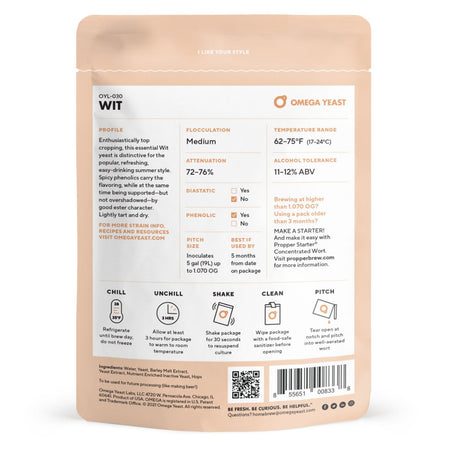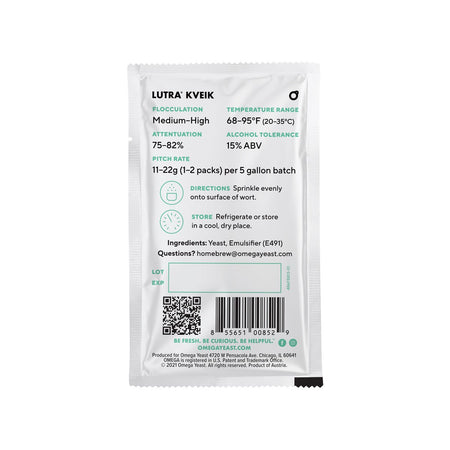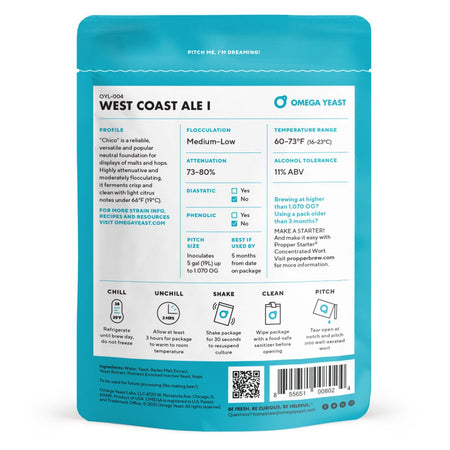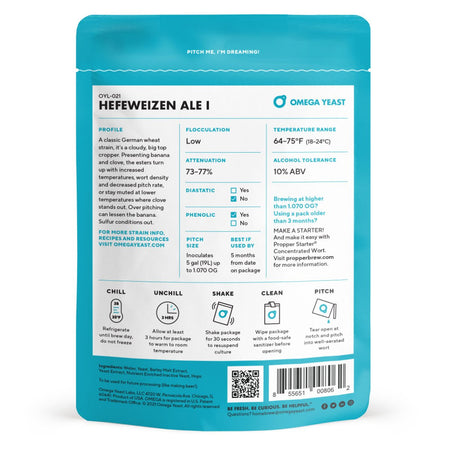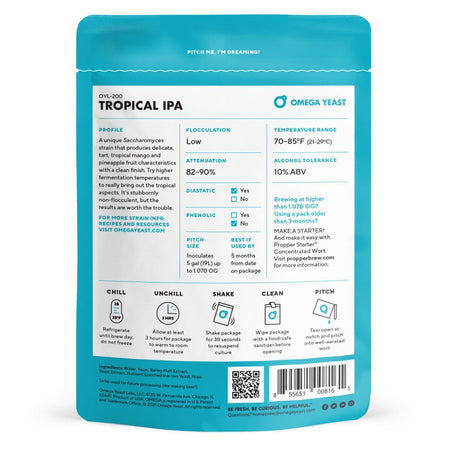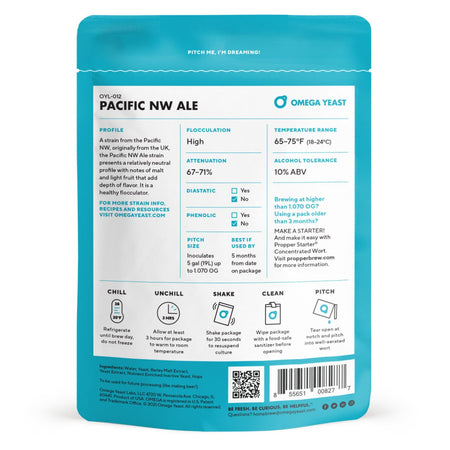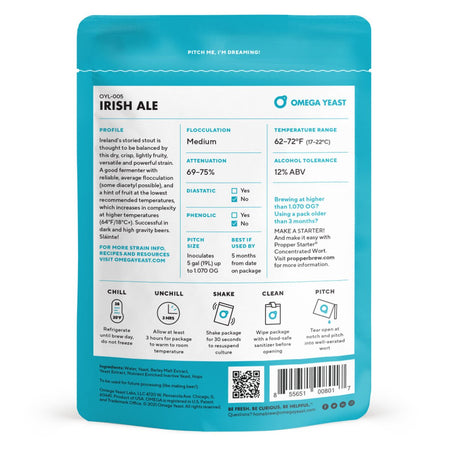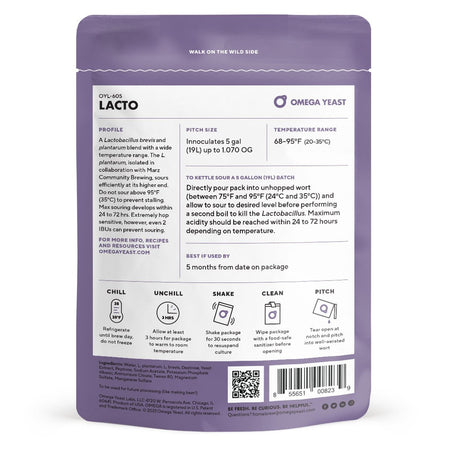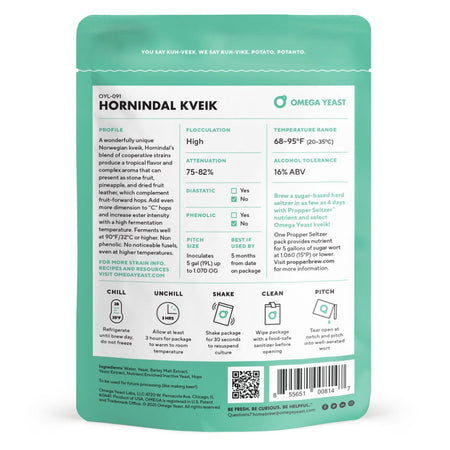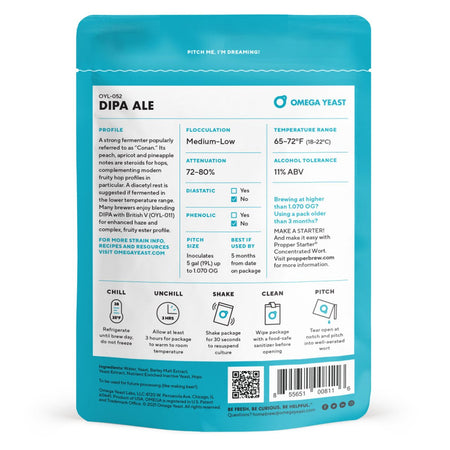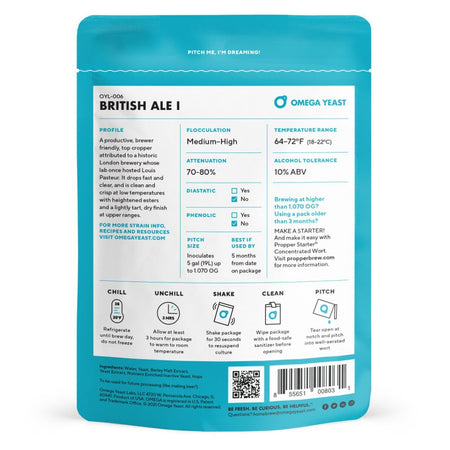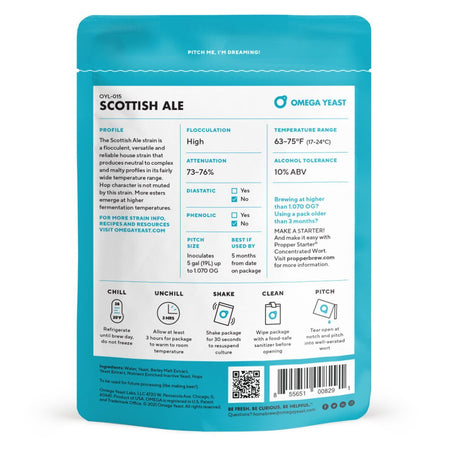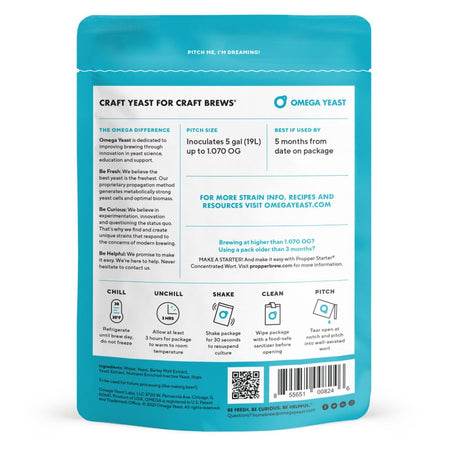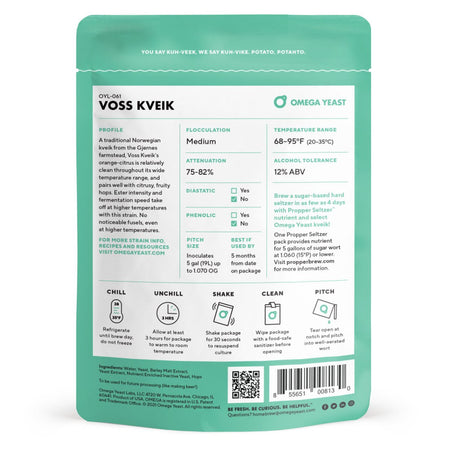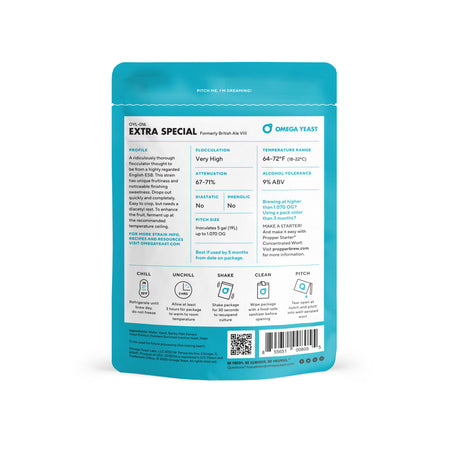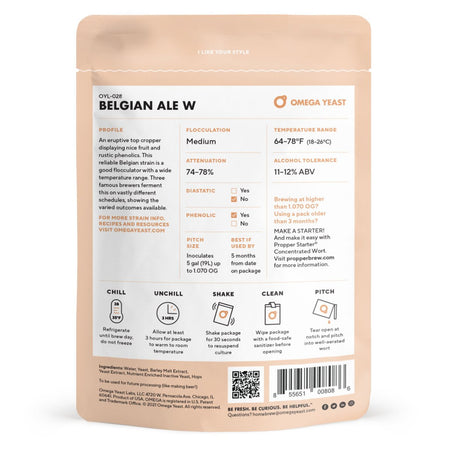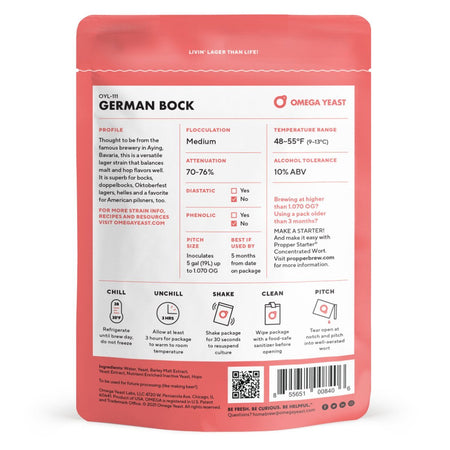Bring new life to your old recipes with a fresh dose of Omega Yeast!
We are proud to offer Omega’s line of HomeBrew strains and, in an exclusive for homebrewers, their complete line of ProBrew strains; available for the first time in homebrew packaging. Omega yeast packs not only have a new look, but they also contain 50% more cells than before - which leads to shorter lag time, reduced off-flavors, & a lower chance of stalled fermentations. This comprehensive collection includes unique strains that were created by Omega Yeast Labs and are not available from any other yeast labs. We've compiled a list of some of Omega's newest and most popular yeasts in our Omega Yeast Labs article.
Looking for something else? Check out our complete line of beer yeast.

